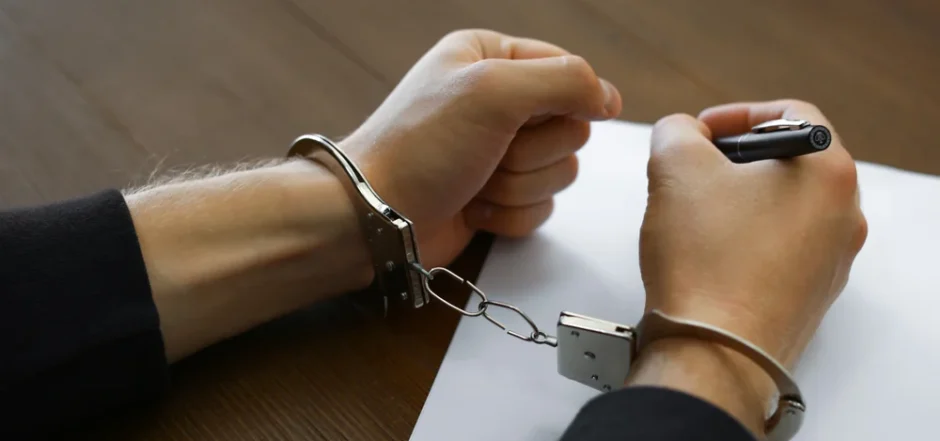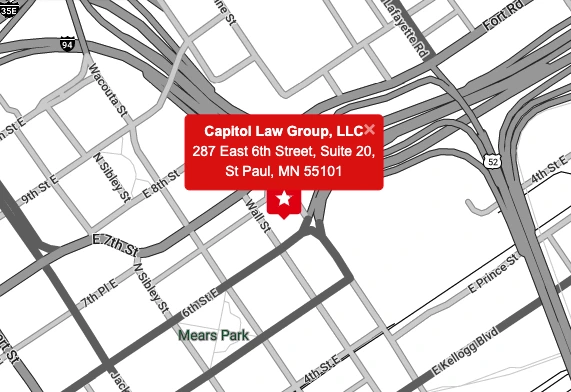How Do St. Paul Felony Lawyers Resolve Criminal Cases?

In the thrilling days of yesteryear, jury trials resolved most criminal cases. But by the late 1800s, things started changing. The country was larger and taxpayers were unwilling to fund additional judicial infrastructure. So, faster plea bargains became more common. Today, these out-of-court settlements resolve over 90 percent of all criminal cases.
Most plea bargains involve reduced charges and/or reduced sentences. In one of the first recorded American plea bargains, in 1891, Albert McKenzie pleaded guilty to misdemeanor embezzlement in an Alameda County courtroom, so he would not face felony charges. He had allegedly siphoned $52 from his employer.
To successfully resolve criminal cases in Ramsey County, St. Paul felony lawyers often follow the same process. Many times, plea bargains do not just include sentence reductions. Often, the defendant emerges with no criminal record.
Jail Release
Prompt jail release jumpstarts a successful defense. Defendants who remain incarcerated often accept unfavorable plea agreements just to “get it over with.”
There are several available options. The Ramsey County Sheriff usually sets a presumptive bail amount in criminal cases. In most felonies, that amount is about $1,500. If that amount is too high, a bail bond may be available. A bail bond is basically an insurance policy which guarantees the defendant’s appearance at trial. Most bonding companies charge about a 10 or 15 percent premium.
If the defendant remains behind bars, a St. Paul felony lawyer can request a bail reduction during the arraignment. During these hearings, Ramsey County judges consider a number of factors, such as the defendant’s connection to the community and the ability to pay.
Frequently, these disputes settle out of court. For example, the prosecutor may agree to reduce bail if the defendant agrees to electronic monitoring or an Ignition Interlock Device.
Probable Cause
Next, a judge must determine if there is probable cause to hold the defendant for trial. This standard of evidence is like a preponderance of the proof (more likely than not), which is the standard in civil court.
Federal felonies usually involve grand juries. The jury reviews the charges and determines probable cause. During these “hearings,” jurors only hear one side of the story. St. Paul felony lawyers cannot advocate for their clients and, in fact, are not even allowed int he grand jury room. Not surprisingly, the grand jury indictment rate is about 99 percent.
A few federal cases involve preliminary hearings instead of grand jury indictments. But since a grand jury is almost a sure thing, few federal prosecutors choose hearings.
Probable cause hearings are rather common in state court. That’s especially true if a St. Paul felony lawyer raises a legal defense, as outlined below.
St. Paul Felony Lawyers and Case Evaluation
Procedural errors normally derail prosecutions. NO one can go back in time and correct law enforcement or other procedural mistakes, such as:
- Inadmissible Evidence: Unless police officers had a valid warrant or a narrow search warrant exception applied, any physical evidence that police officers seized may be inadmissible in court. Without evidence, it’s impossible to prove guilt beyond a reasonable doubt.
- Miranda Warnings: Officers must give suspects their Miranda rights (you have the right to remain silent, etc.) before custodial interrogation begins. If they fail to do so, any statements the defendant makes, and any evidence that investigators find, might be inadmissible in court.
- Lack of Evidence: Sometimes, there is a complete lack of evidence on an essential element. DUI collisions are a good example. Unless a witness saw the defendant behind the wheel at or near the time of the crash, driving under the influence charges will not hold up in court.
Other times, the prosecutor’s evidence is weak. Assault cases are a good example. Frequently, the alleged victim refuses to cooperate or is unavailable to testify. In these situations, it is difficult to establish guilt beyond a reasonable doubt. So, prosecutors are often motivated to offer very favorable plea deals.
Resolution
As mentioned, St. Paul felony lawyers can often engineer plea bargains which do not involve convictions. That’s especially true if the defendant is charged with felony drug possession or another nonviolent crime.
Deferred disposition is normally available in these situations. The defendant pleads guilty or no contest and receives probation. But the judge does not technically find the defendant guilty. Instead, the judge defers that part of the proceeding until after the defendant completes probation. At that time, the judge dismisses the case.
Contact a Dedicated Attorney
Even serious criminal cases often have (at least somewhat) happy endings. For a free consultation with an experienced St. Paul felony lawyer, contact Capitol City Law Group, LLC. Go online now, call us at 651-705-8580, or stop by 287 6th St E, Suite 20, St Paul, MN 55101.




